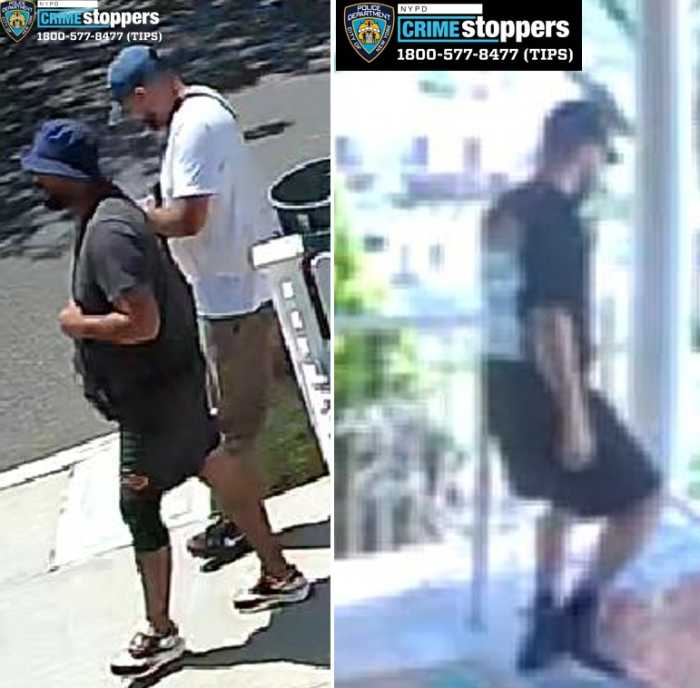By Alex Berger
Who in my childhood’s earliest day…Before my tongue one word would say
Would let me with his hair to play – My Father!
When rested on my Mother’s knee…Who used to play at peep with me…
Hiding where Baby could not see – My Father!
Who coaxed me for medicine to take…Giving me sugar plums, cherries and cake…
If I would drink it for his sake – My Father!
Who placed me on his foot to ride…While anxiously my Mother cried…
To hold her Boy lest he should slide…My Father!
His name was William Berger and he arrived in the United States as a 17-year-old youth in the early 1900s from an area in Europe then known as Russia-Poland. His parents were here to greet him, and he settled down on the Lower East Side to make a new life for himself.
He was strong, handsome and poor; however, once he landed here, he was besieged by many young women with marriage on their minds. Pop resisted until he reached the age of 24, when beautiful, 17-year-old Bella Heller (who had gone through Ellis Island two years earlier from Austria) came into his life. Willie then decided it was time to settle down and get married. And, they did.
Times were hard, and Pop was an accomplished tailor, but he opted to work as a garbage collector with the New York City Department of Sanitation. It paid a steady $36 a week and offered job security, a necessity for his growing family.
The handling of other people’s garbage was especially distressing for Pop, who possessed the world’s most squeamish stomach. We would watch in sympathy as he tried to placate his stomach. We could only imagine what types of garbage he handled to cause such misery because he never would talk about it. But Pop was up every morning at 4, and I don’t remember a day when he missed work.
Pop never learned to read or write, except for signing his name on his marriage certificate and on his paychecks. But he learned to compensate. When Pop was upgraded to chauffeur, he had to deliver sanitation trucks to outlying regions of the city. Despite his inability to read street signs, he always found his way. Me, I still get lost trying to get to the office every day.
My father also moonlighted as a tailor. Both jobs required that he work as many as 17 hours a day. Since the secondary income was necessary to supplement the low city wages, he worked both jobs consistently. I never saw him when he wasn’t tired. But he seldom complained.
In addition to working long hours, Pop spent much of his limited house time as a “doctor,” administering “bonkes” to sick neighbors who couldn’t afford regular doctors.
Bonkes, or cupping, was an old European remedy for healing a multitude of maladies. It required several thick glass cups in which a vacuum was created. This was done by inserting a flamed applicator into each cup to “burn out” the air. The cups were then placed, one at a time, on the area causing the discomfort. This supposedly drew out the bad blood. It apparently worked, because the cupping did help many sufferers.
Pop was regaled for his healing powers. Although he had a large family (a wife, eight children, a boarder and a cat), and we could have used it, Pop never accepted money. “Being able to help sick people is my payment,” he would say.
My father once canceled an insurance policy on me when I was lying critically ill in Bellevue Hospital with double pneumonia. Pop (and Mom) did not want the kind of money that required me to die before they could collect the money.
Pop also refused a small inheritance from a grateful neighbor who had died. It was repayment for the many favors Pop did for him. “Give it to a charity,” he instructed the lawyer. Pop did not want that type of money, either.
Pop also had a great sense of humor. He was the Jay Leno of his time. One day, the children asked him why he had so much hair on his chest. He explained that men with lots of hair on their chests were blessed. They either had lots of money or lots of children. “Thank God I was blessed with children,” he winked.
My sister Anna, who was 7 at the time, awoke my sleeping father with the news that Barney, the neighborhood tough, was bothering her. Pop immediately rose from his bed, went into the street and collared the frightened youth. He put his arm around Barney’s shoulders and escorted him to the candy store, where he bought the tormentor a soda.
“Barney,” he said, “girls are weaker than boys. Therefore, someone must protect them. Since I know that you are very strong, I am picking you to be Anna’s protector.”
“I will,” Barney said proudly, and indeed, he was. For many years, nobody picked on Anna while Barney was around. It wasn’t until Anna was 21 when she finally was able to convince Barney that his pledge to my father could end.
Another memory of Pop occurred during my teens. I was experiencing a severe toothache. My tired father, before retiring for the night, took one look at my anguished face and sensed something was wrong. He beckoned me. “Alex, my boy, I think it is time for us to talk about girls.”
There were so many more unforgettable memories. Suffice to say, Pop was a superb teacher, a humanitarian and, above all, a marvelous father. The neighborhood mourned his death in 1956.
Several months ago, I wrote a column about a highly decorated World War II hero, Flushing’s Murray Juvelier, who, in his childhood, lived in the old neighborhood. During the interview, Juvelier said, “Alex, I loved your father.” That remark pleased me.
It was most gratifying that someone from the old neighborhood remembered my father after so many years. Pop, you led a much-admired life. Sleep well.
Contact columnist Alex Berger at Timesledger@aol.com or call 718-229-0300, Ext. 140.
































